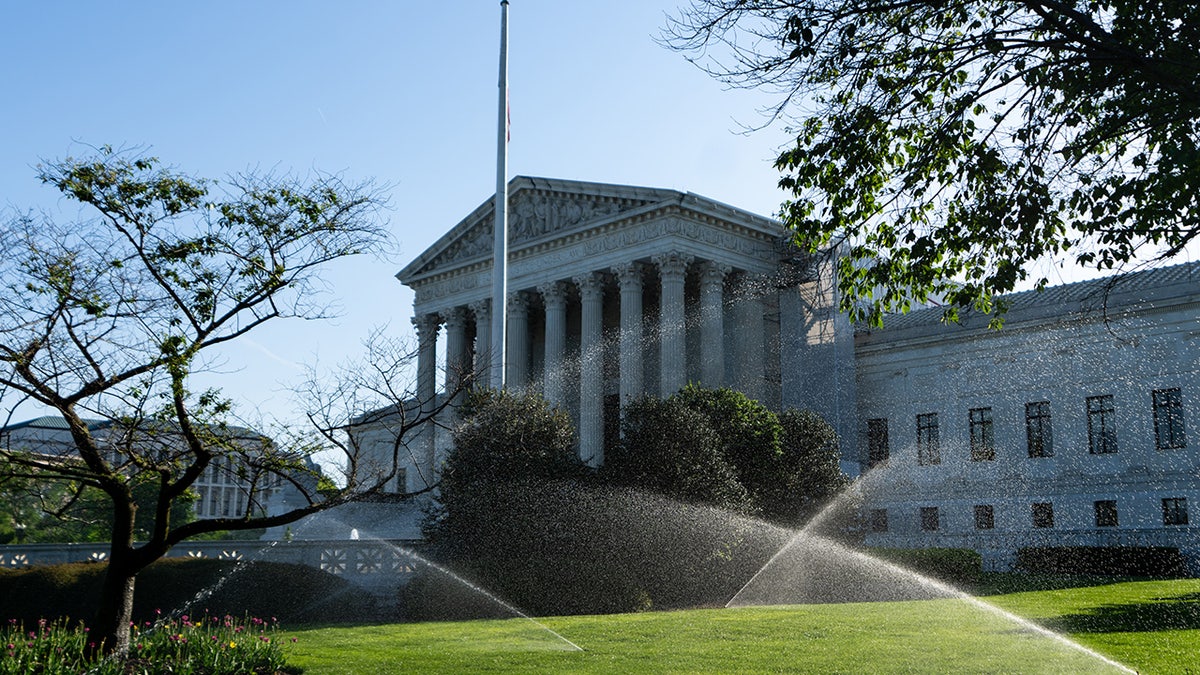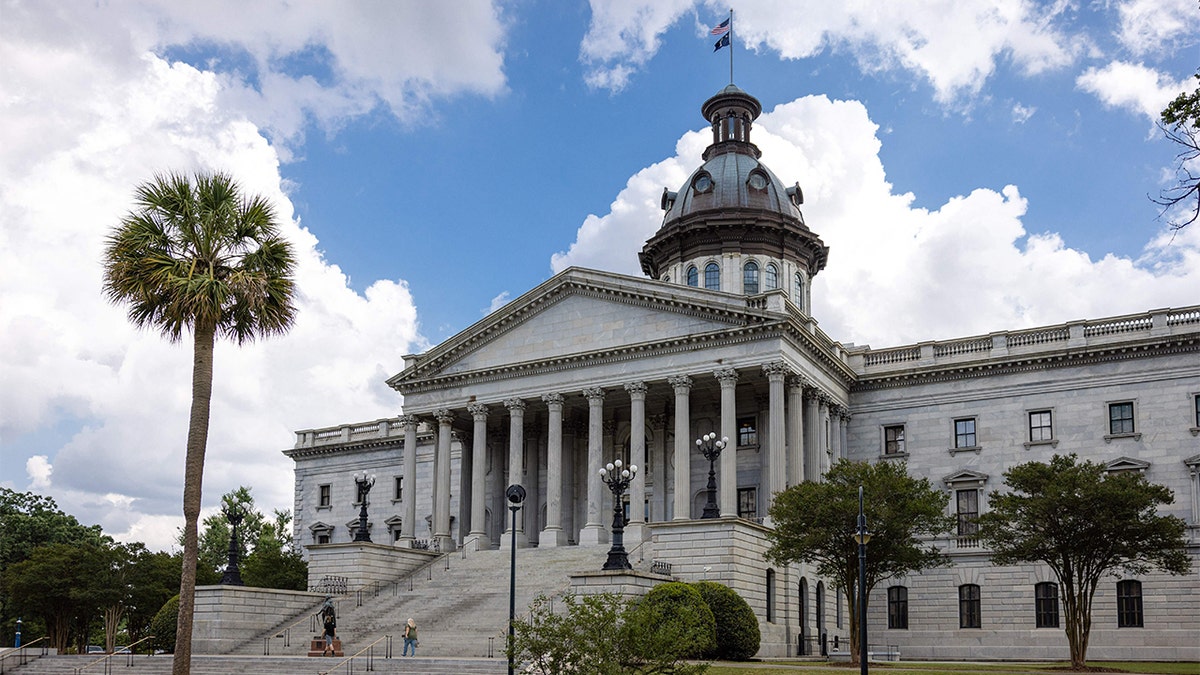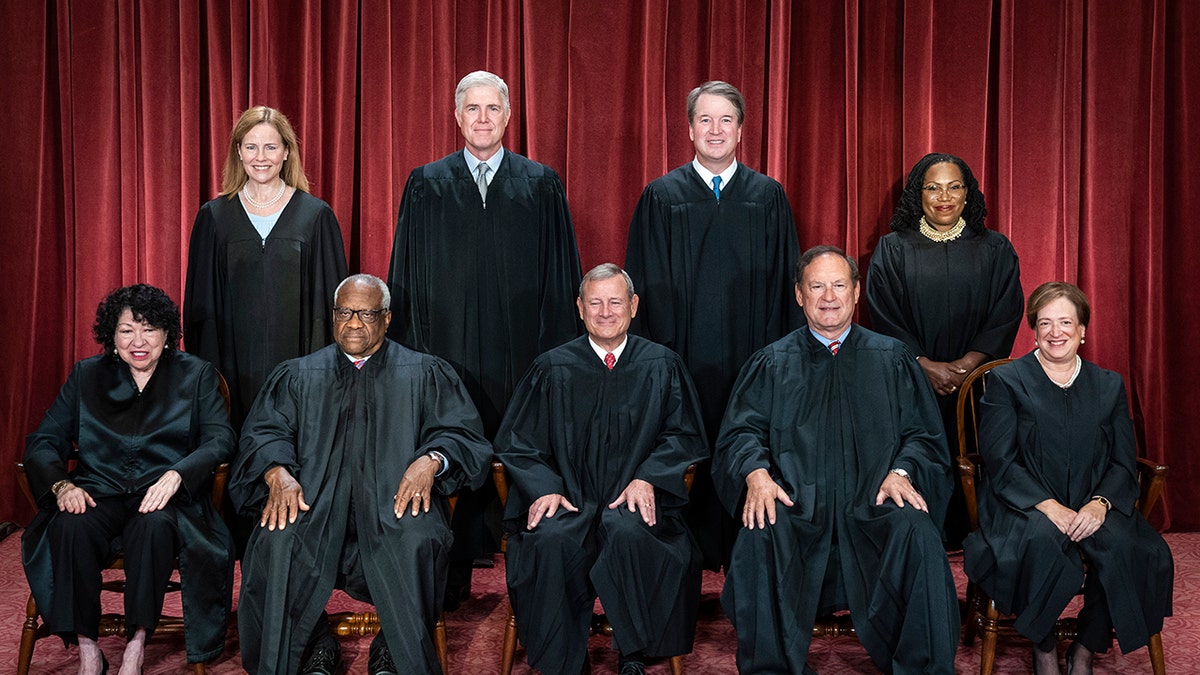The Supreme Court ruled on Thursday to reverse a lower court’s decision that said a South Carolina redistricting map was unconstitutional, rejecting the idea that it was racially discriminatory.
In a 6-3 decision, written by Justice Samuel Alito, the high court said that, “a party challenging a map’s constitutionality must disentangle race and politics if it wishes to prove that the legislature was motivated by race as opposed to partisanship. Second, in assessing a legislature’s work, we start with a presumption that the legislature acted in good faith.”
“In this case, which features a challenge to South Carolina’s redistricting efforts in the wake of the 2020 census, the three-judge District Court paid only lip service to these propositions,” the decision states.
NAACP LASHES OUT AT ‘HATE-INSPIRED’ SUPREME COURT AFTER AFFIRMATIVE ACTION RULING

Sprinklers water the lawn in front of the U.S. Supreme Court on Monday morning, April 29, 2024. (Bill Clark/CQ-Roll Call, Inc via Getty Images)
“That misguided approach infected the District Court’s findings of fact, which were clearly erroneous under the appropriate legal standard,” Alito wrote.
The case stems from a challenge by the ACLU and the NAACP claiming that the redrawn maps following the 2020 census were illegally gerrymandered and had urged the justices to rule in time to impact upcoming congressional races.
However, a federal court panel that had initially struck down the maps as unconstitutional said in late March it was “plainly impractical” to wait for the Supreme Court to decide, and allowed the disputed maps to stand.
It is unclear the extent the high court’s ruling may will have on other 2024 elections, with many states already holding primaries or setting deadlines for early voter registrations.
The high court’s conservative majority in its ruling expressed concern over a federal court ruling that initially ordered South Carolina to create a new congressional map in time for the November 2024 election.
SUPREME COURT RULES IN FAVOR OF CFPB, BRAINCHILD OF SEN. ELIZABETH WARREN

The South Carolina State House in Columbia, South Carolina. (LOGAN CYRUS/AFP via Getty Images)
That three-judge panel found the coastal 1st Congressional District, now held by Rep. Nancy Mace, R-S.C., was an unlawful racial gerrymander when Republican lawmakers shifted about 30,000 Black voters from Charleston County over to the state’s 6th Congressional District, which became more solidly Democratic than it was before.
That seat is held by Rep. James Clyburn, D-S.C., a longtime member of Congress who is Black.
However, the high court’s delay in issuing its ruling means the disputed map will remain in place for the 2024 elections.
Justice Elana Kagan, backed by Justices Sonia Sotomayor and Ketanji Brown Jackson, dissented, saying, “In every way, the majority today stacks the deck against the Challengers. They must lose, the majority says, because the State had a ‘possible’ story to tell about not considering race—even if the opposite story was the more credible.”
EXPERTS EXAMINE HOW SUPREME COURT COULD OVERHAUL VOTING RIGHTS LITIGATION IN POSSIBLE GERRYMANDERING CASE

Associate Justice Sonia Sotomayor, Associate Justice Clarence Thomas, Chief Justice of the United States John Roberts, Associate Justice Samuel Alito, and Associate Justice Elena Kagan. Top row, from left, Associate Justice Amy Coney Barrett, Associate Justice Neil Gorsuch, Associate Justice Brett Kavanaugh, and Associate Justice Ketanji Brown Jackson. (Jabin Botsford/The Washington Post via Getty Images)
“And they must lose again, the majority says, because they failed to offer a particular form of proof—which they did not know would be relevant and which this Court recently told plaintiffs was not required,” she said.
CLICK HERE TO GET THE FOX NEWS APP
“It does not matter that the Challengers offered extensive evidence, including expert statistical analyses, that the State’s districting plan was the product of racial sorting.”
